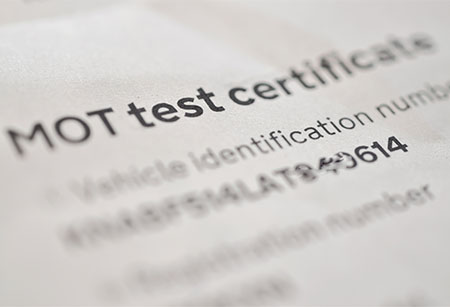Circumstances, where you are allowed to drive without an MOT, are very limited and the rules around when you can drive without an MOT can be confusing. Hopefully, we will clear up some of this confusion and help you to understand the rules and regulations surrounding MOTs a little more clearly.

What happens if I don’t MOT my car?
Driving a car with an invalid or expired MOT test is against the law and will also invalidate your insurance. Car MOT tests must be carried out at a DVSA-approved garage or testing centre.
Can you drive without an MOT?
Well, yes and no. Your MOT is a test and certificate confirming that your vehicle is roadworthy. As soon as that certificate expires, your vehicle is no longer considered to be roadworthy in the eyes of the law.
If you are stopped by the police and they request a copy of a valid MOT, failure to provide one can lead to prosecution for non-compliance.
The only time that it is not illegal to drive your car without a valid MOT is when you are driving to a pre-booked appointment at a garage for an MOT test.
If you do get stopped by police, you will have to provide proof that you have a pre-booked appointment for an MOT test to which you are travelling.
When is it legal to drive without an MOT?
As stated above, the only time that it is legal to drive without a valid MOT is when you are driving your car to an MOT test centre for a pre-booked appointment. The appointment must be pre-booked, you cannot simply be driving to a test centre hoping to have the car tested when you arrive.
Again, if you cannot provide satisfactory proof to the police that you are driving without an MOT to a pre-booked appointment at a test centre, you may be liable for prosecution.

What is the penalty for driving without an MOT?
It is often the case that driving without a valid MOT is not punished quite as severely as other motoring offences, especially if it’s dealt with quickly.
Points are not usually issued on to a driver’s licence, however, a court can impose a fine of up to a maximum £1,000. Your car may also be impounded.
Driving without a valid MOT should not be confused with driving a vehicle that is considered not to be roadworthy and in a dangerous condition. You can have a valid MOT but be driving a vehicle that is in a dangerous condition, as anything can happen within the 12 months between MOT tests that causes the vehicle to become dangerous.
If this is the case, the fine can be up to a maximum of £5,000 for an HGV (Heavy Goods Vehicle) or PCV (Passenger Carrying Vehicle) and all other vehicles, including cars, of up to £2,500.
In addition to a heavy fine, 3 points may be issued to the driver’s licence per defect. So in other words, you can be issued with 3 points for faulty brakes, a further 3 points for faulty lights and a further 3 points for each faulty tyre, and so forth.
Does driving a vehicle without a valid MOT invalidate your insurance?
There isn’t a straightforward answer to this question, as all insurance companies are different and you should check your own policy’s terms and conditions, or speak with your insurance company if you want an answer that is specific to your vehicle.
Having said that, in nearly all cases, motor insurance companies will state that, as soon as your MOT expires, your insurance becomes invalid as they only want to insure roadworthy vehicles in order to keep claims to a minimum.
This causes two major problems. Firstly, it is illegal to drive without valid insurance so you are leaving yourself open to prosecution and a penalty of at least £300 and 6 penalty points. If the matter goes to court, you are liable for an unlimited fine, a possible ban from driving and your vehicle may be seized and even destroyed.
Secondly, the average insurance claim is £2,160 according to the Association of British Insurers. If you have an accident and you have no valid MOT, your insurance company may state that your insurance was invalidated as a result. You are then left liable for any costs as a result of that accident.
The bottom line is, why take a risk? Find out when your MOT is due then book your car in for its MOT with Stoneacre.




















